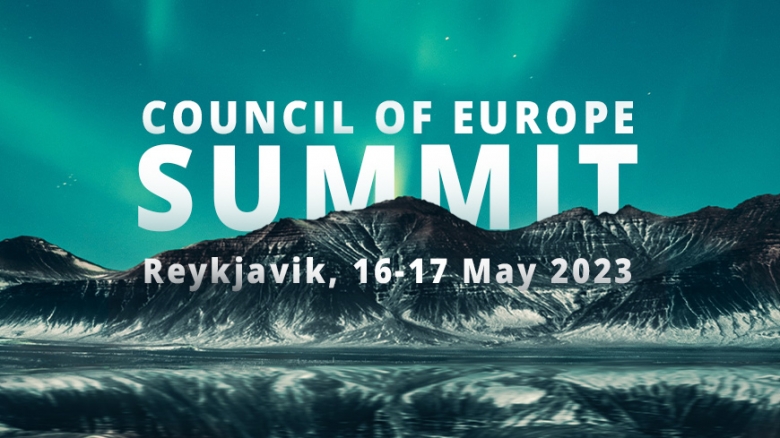Europa Nostra contributes to the hearing with civil society on the implementation of the Reykjavik Declaration adopted by the 4th Summit of the Council of Europe
Following Europa Nostra’s contribution to the public consultation published by the Council of Europe ahead of the Reykjavik Summit, the Secretary General of Europa Nostra, Sneška Quaedvlieg-Mihailović, was invited on 6 June to share the views of the organisation on how best to implement the Reykjavik Declaration with a number of representatives of the civil society and the NGO community.

Image: Courtesy of Council of Europe
The exchange of views started with brief introductory remarks by Ambassador Karklins, Chairman of the Committee of Ministers’ Deputies, and by Gerhard Ermisher, President of the Conference of INGOs whose role is to strengthen the role of Civil Society in the Council of Europe.
In her forceful intervention, Sneška Quaedvlieg-Mihailović recalled the strong link between the Council of Europe and Europa Nostra which was born on 29 November 1963 at the Council of Europe office premises in Paris, as well as the important acquis of the Council of Europe on culture and cultural heritage and especially the European Cultural Convention, which was the second convention adopted by the Council of Europe in 1954.
At the #CouncilOfEuropeSummit, European leaders wrote history and showed inspiring determination and unity around our common values, around what makes Europe be #OneEurope.
⭐️The Reykjavík Declaration sets the direction for the Council of Europe for the years to come ⬇️
— Council of Europe (@coe) May 30, 2023
While regretting that the emphasis on culture and cultural heritage is not sufficiently strong in the Reykjavik Declaration, she welcomed the fact that civil society had been consulted and that due emphasis had been placed on environment and climate action. She strongly encouraged the Council of Europe, as part of the follow-up of the Reykjavik Summit, to revive its focus on culture and cultural heritage as strategic resources for strengthening the sense of togetherness and the sense of belonging to our pan-European family of countries, regions, cities, communities and civil society, and to implement the principles of the Faro Convention on the Value of Cultural Heritage for Society adopted by the Council of Europe in 2005.
She also stressed that the links between culture, cultural heritage, and nature need to be further explored and enhanced as the two sides of the same coin and as resources that bring Europeans together. She pointed out that serious damage caused to cultural and natural heritage should be duly included in the newly established Register of Damage Caused by the Aggression of the Russian Federation Against Ukraine.
In response to the many challenges which Europe faces today, she concluded that the Council of Europe should build on the important acquis developed in the field of culture and cultural heritage. It should also further deepen and enlarge its dialogue with civil society which has always been one of its strengths, and it should promote the capacity building of civil society across Europe and their due participation in policy and decision-making which is a prerequisite for a healthy democracy and full respect of the rule of law.
Last but not least, she emphasised that the Council of Europe should become a true champion of “cultural rights” as key components of the corpus of human rights of which the Council of Europe is such a vital guardian.






